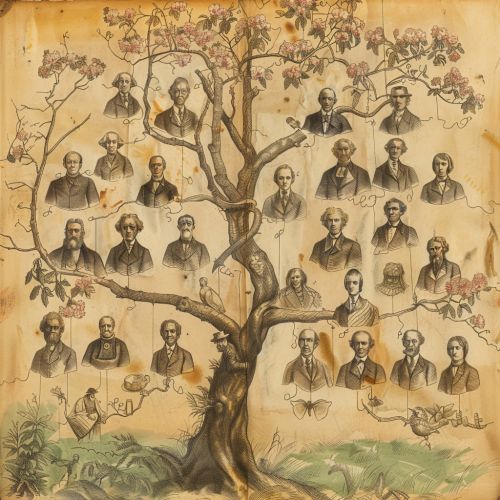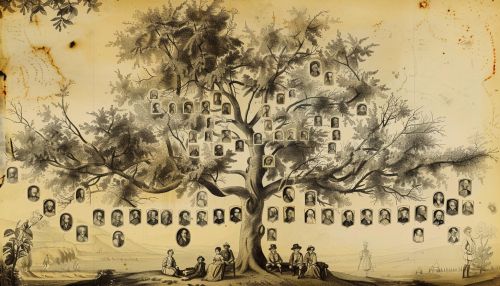Darwin–Wedgwood family
Early History
The Darwin–Wedgwood family is a prominent English family that has made significant contributions to the fields of science, literature, and art. The family's most notable members include Charles Robert Darwin, the naturalist and geologist who proposed the theory of evolution, and Josiah Wedgwood I, the founder of the world-renowned pottery firm, Wedgwood.


The family's origins can be traced back to the marriage of Robert Darwin and Susannah Wedgwood in 1796. Robert Darwin was a respected physician and the son of Erasmus Darwin, a prominent physician, natural philosopher, and poet. Susannah Wedgwood was the daughter of Josiah Wedgwood I, who was renowned for his revolutionary pottery designs and business acumen.
The Darwin Line
The Darwin line of the family has produced several notable figures in the field of science. Charles Darwin, the most famous member of the family, developed the theory of evolution by natural selection, which revolutionized the understanding of the natural world. His work, On the Origin of Species by Means of Natural Selection, published in 1859, has been described as one of the most influential books ever written.
Charles Darwin's son, George Howard Darwin, was a distinguished astronomer and mathematician. He made significant contributions to the understanding of tidal friction and the evolution of the moon. Another son, Francis Darwin, was a botanist who worked closely with his father and continued his work after his death.
The Wedgwood Line
The Wedgwood line of the family has been equally influential, particularly in the fields of art and industry. Josiah Wedgwood I revolutionized the pottery industry with his innovative designs and manufacturing techniques. His work was characterized by a commitment to high-quality craftsmanship and a keen eye for design.
Josiah's grandson, Josiah Wedgwood II, continued his grandfather's work and expanded the business internationally. He was also a prominent abolitionist and was instrumental in the passage of the Slave Trade Act of 1807, which abolished the slave trade in the British Empire.
Interconnections and Influence
The Darwin–Wedgwood family's influence extended beyond their individual achievements. The interconnections between the two lines of the family created a network of influence and support that facilitated their accomplishments. For example, Charles Darwin's work on evolution was supported by his cousin, Emma Wedgwood, who he married in 1839.
The family's influence also extended to the wider society. They were prominent supporters of education and social reform, and many members of the family were involved in philanthropic activities. For example, Millicent Garrett Fawcett, a member of the family through marriage, was a leading suffragist and played a key role in securing the vote for women in the UK.
Legacy
The legacy of the Darwin–Wedgwood family continues to be felt today. The family's contributions to science, art, and social reform have had a lasting impact on society. The family's commitment to intellectual inquiry and social progress continues to inspire and influence people around the world.
